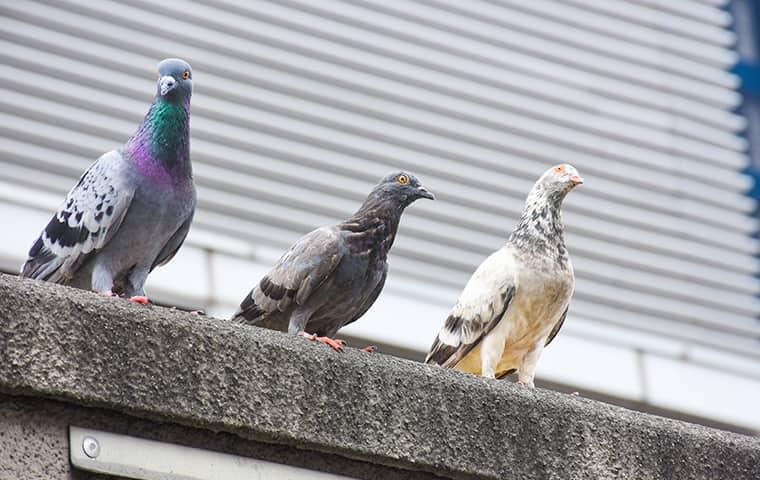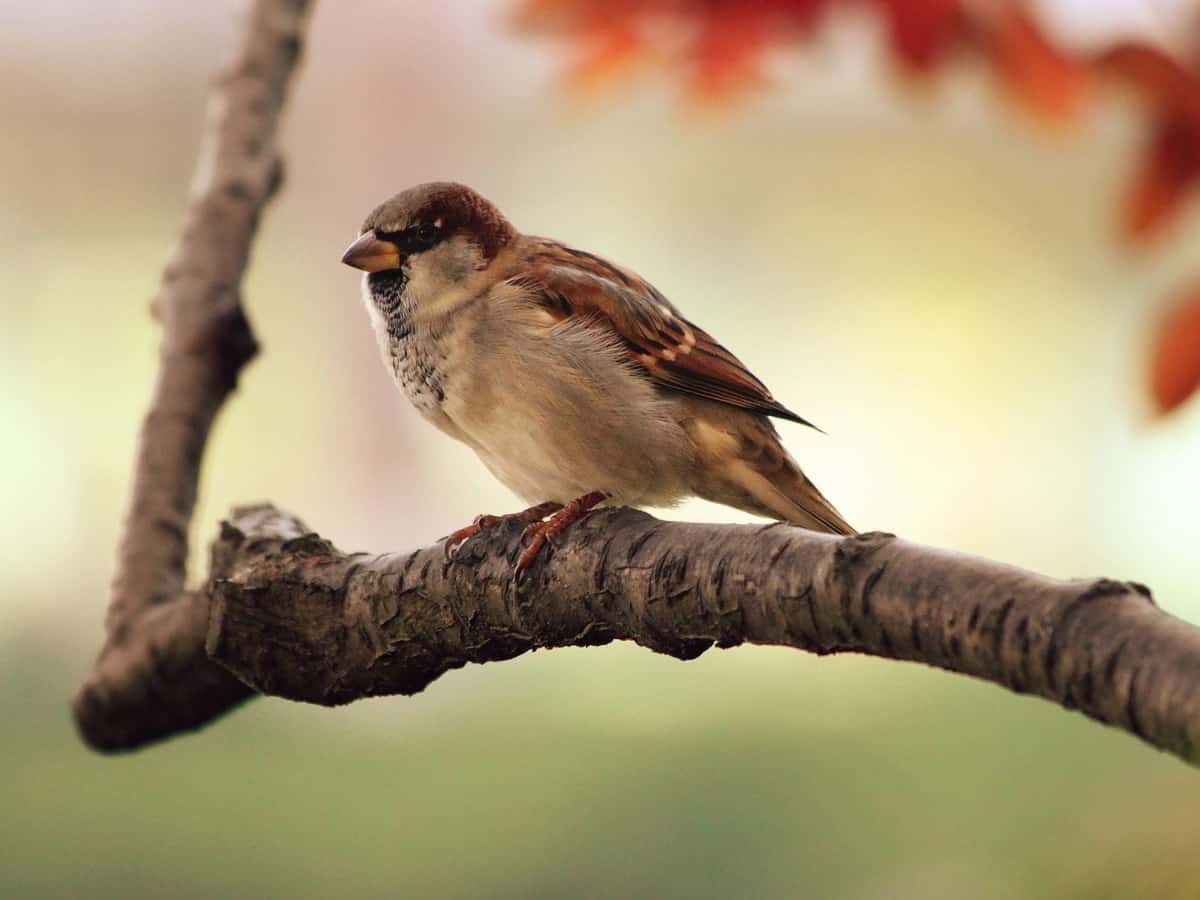Proudly Serving Northern New Jersey, Rockland County & Manhattan
Birds occasionally find their way into buildings, where they may cause noise disturbances, damage to the structure, and messiness. Nuisance birds such as pigeons, sparrows, seagulls, starlings, and grackles can cause serious issues. They can cause damage to your property through their droppings and nests, disrupt your business by entering your facility, or leave an unsightly, unhygienic mess inside and outside of your building.
Birds are also an essential component of our natural ecosystem because they help spread seeds, pollinate plants, and even get rid of pests. One hundred species of birds can be found in the United States alone. Laws, rules, and public opinion dictate the extent of protection that birds can receive and the types of bird control that are permissible.

In these situations, it’s critical to understand your options while adhering to local, state, and federal regulations about bird removal. Different removal techniques are needed for certain birds; otherwise, the issue could get worse.
For this reason, any bird-related problems your home or company may be having should be handled by a qualified bird control company.

Birds can damage your business, home, reputation, and image. It doesn’t end with the ugly mess they leave behind. Feathers and droppings have the potential to spread more than 60 diseases and deteriorate air quality, endangering people’s health and safety.
The effects on tenant retention can be disastrous if you are a building owner. In certain situations, the presence of birds may result in audit and inspection failures, which could result in closures and revenue losses.
Certain scavenger species can annoy diners and interfere with outdoor dining experiences. Costly fixes and ongoing cleaning don’t address the issue. By themselves, exclusion strategies merely move your issue, and the expenses can be prohibitive.
While most birds are thought to be highly valued, according to conservationists and birdwatchers, some species are regarded as pests because of their negative effects on nearby ecosystems and properties.
Numerous migratory birds are protected across the United States by federal, state, and local regulations. Nonetheless, birds that are frequently considered pests and are typically invasive species, meaning they are not covered by national laws. Usually, these consist of:
House sparrows are small, stocky birds with short beaks. Females have light gray necks and stomachs and are buff and brown on top. Males typically have reddish chestnut-colored wings with black bands encircling them.
They usually reside close to people because it offers them some protection from incoming predators. Sparrows spread diseases that affect people, pets, and livestock. Chlamydiosis, erysipeloid, salmonellosis, toxoplasmosis, schistosomiasis, and beef tapeworms are a few of the illnesses that can be lethal.
In addition to causing havoc on residential and commercial properties, these pest birds also leave behind nests and droppings that damage structures. They can be surprisingly aggressive if their nest is in an area that is heavily infested; they frequently attack any potential threat to their nest.
The Columbidae family has certain protected species, but not all of them, including rock pigeons. They are plump birds with small heads and short legs that are also referred to as common pigeons or rock doves.
Although plumage color varies, rock pigeons typically have iridescent plumage at the throat and light gray feathers with black bands on their wings.
Pigeons in urban settings favor building their nests in the artificial cliffs that tall buildings create, giving them access to roof spaces and ledges. Since they can spread potentially fatal illnesses like toxoplasmosis, salmonellosis, and tuberculosis to humans, these birds are often referred to as sky rats.
In particular, those with weakened immune systems should be cautious around their excrement as it may harbor lethal bacterial and fungal infections.
The feathers of starlings are glossy, black, and iridescent, with long, narrow bills. They also have white spots in the winter, which contrast with the black plumage and are thought to be the source of their name. The loud, bothersome European starling bird can seriously injure people, pets, and livestock.
These nuisance birds can spread potentially deadly illnesses like salmonellosis, toxoplasmosis, histoplasmosis, and chlamydiosis, as well as parasites like mites and fleas. In addition, a European starling flock’s combined weight, reaching 20,000 birds in the winter, can also topple trees and break branches, endangering nearby structures.
Birds roosting and nesting can damage your property in several ways. It is not only an eyesore on any residential or commercial property, but it will unavoidably gather and quickly demolish building materials.
Feces-related damages:
Nest-related damages:
Bird droppings are not only very ugly and hard to get rid of, but they also contain a lot of pathogens that are harmful to people’s health. Bird droppings contain bacteria and spores that can be extremely dangerous to people’s health. Additionally, ticks, fleas, and other parasites are spread by birds.
The disease organisms that can develop in the nutrient-rich collections of bird droppings, feathers, and debris beneath a roost pose the greatest health risks, especially if the roost has been in use for a long time. When infected birds depart from their roosts or nests, external parasites may also become an issue.
After that, the parasites can enter buildings and sting humans.
Typical transmissible bird diseases include the following:
The amount of time required to effectively control pest birds can be significantly decreased by identifying the warning signs of a serious issue and acting quickly to find a solution. First, you can look for these symptoms:
You can keep these animals from becoming an issue in your house or place of business by taking some preventive bird control measures:
The first step is an inspection. Any bird control service is careful about the examination of the affected area. To determine the type of pest bird in question, wildlife technicians use their expertise in bird behavior, visual identification, auditory calls, and nesting sites.
Their knowledge of avian ecology enlightens them on the best course of action to address the issue and keep it from happening again. These places can be balconies, ledges, chimney stacks, gutters, culverts, roofs, tree cavities, and wall voids.
Exclusions and Deterrents – The best way to make a property unappealing to birds is to use deterrent and exclusion techniques. These can include a wide range of strategies tailored to your facility, including pyrotechnics, bird wire, netting, and other techniques.
Traps – Using temporary but efficient exterior bird control traps to address a bird problem swiftly. For birds lacking strong homing instincts, such as sparrows and starlings, experts will employ these mechanical traps.
Habitat Modification – Some techniques can be used like bird repellents, physical control, and electronic control to make your business less inviting to birds, so they won’t nest or roost there.
Chemical Foggers: They are useful for keeping obstinate pest birds away from large outdoor spaces because they use non-toxic liquid methyl anthranilate. Foggers, which are applied by experts using thermal and fogging machines, are advised for removing sizable flocks of pest birds, such as starlings, pigeons, grackles, geese, and sparrows.
Titan Pest Services has professionals in bird control, and they will remove birds from your property using the right products and methods according to your problem.
Put an end to allowing birds to rule your life. You are far too valuable to waste your money or time. Using Titan’s customized bird control program, take charge right now!